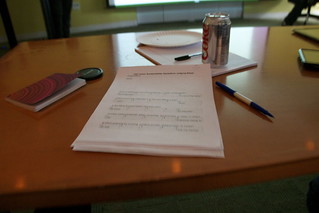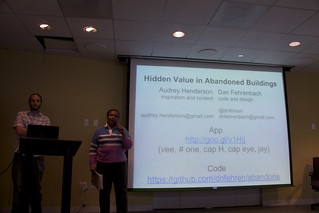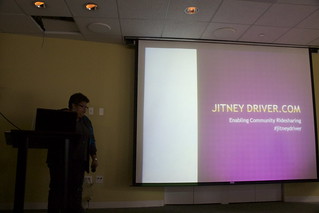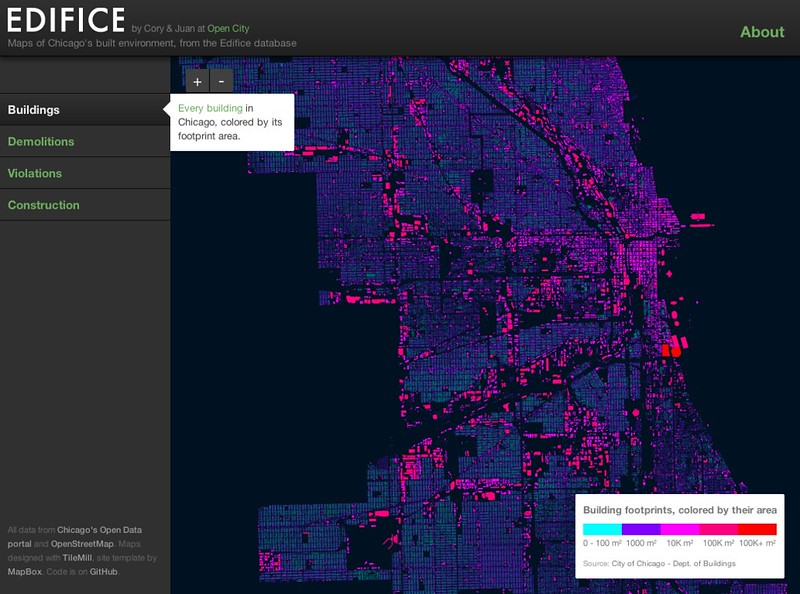Long a great resource in Chicago’s Bronzeville for people looking for job training and other services the Charles A. Hayes Family Investment Center has added even more programs to help Chicagoans gain the connections and computer skills they want and need. Continue reading
Month: October 2012
Dearborn Homes Lab Provides Residents Computer Access, Job Resources and Training
Minimizing the city’s digital divide by providing computer education and access to everyone, the Chicago Housing Authority is opening technology centers in residential developments. Continue reading
Smart Chicago + Local Developers + Tweets = Better Public Health
The Smart Chicago Collaborative provided server space on our Amazon Web Service account so that a local developer to develop an algorithm to classify tweets in the service of public health. Here’s how Joe Olson of Tracklytics describes the work:
Tracklytics partnered with Smart Chicago and DePaul University to enter a the Now Trending: #Health in My Community contest sponsored by the Department of Health and Human Services. The purpose of the contest was to spur innovation in analyzing social media outlets to detect global health trends. Specifically, the contest requirements were to use Twitter to identify trending topics relating to disease, such as West Nile virus and Legionnaire’s disease.
Tracklytics designed and implemented the solution, DePaul helped with testing and algorithm validation, Smart Chicago funded the computer time.
We did not win the contest, but several innovations were developed. We now have the ability to collect over 1,000,000 disease-related tweets per day. A subset of these tweets are run through a machine learning algorithm, and can be filtered down to a much smaller set of tweets where someone is reporting having an instance of a disease, as well as their location. Current accuracy of this is near 85%. We’ve reduced the cost of classifying tweets down to .0000057 cents/tweet, storing them for analysis down to 0.000000235 cents/tweet/month, and archiving them down to 0.000000004 cents/tweet/month.
You can view the site at http://hhs.tracklytics.com
We are currently working on modifying this technology to track food poisoning cases in Chicago. Once legitimate food poisoning cases reported by individuals are identified by Twitter using the machine learning algorithm, we can send to the person reporting the case a tweet containing a URL directing them to a form to collect more specific information (do you suspect the incident occurred at a restaurant, was from tainted food, etc). This information can them be entered into the City’s 311 system via the Open311 interface, and directed to the City’s Health Department for further analysis.
Lots more to come from this work— stay tuned!
Smart Chicago Hosts Flu Shot App for Local Developer Using Civic Data
Today the Mayor’s Office and the Chicago Department of Public Health (CDPH) announced the launch of a new interactive web map that pinpoints CDPH’s citywide flu shot clinics based on location and hours of operation. Here’s a snip from the press release:
The Smart Chicago Collaborative hosted project was led by the Tom Kompare, who volunteered his time to develop the app that makes it easy for Chicago residents to stay healthy this flu season by finding their nearest flu shot clinic to get vaccinated. Kompare lives in Rogers Park and also volunteers with Open Government Chicago(-land), a technology meetup group for Chicagoans interested in seeing governments function more efficiently and responsively.
“Helping make City data more accessible and understandable is my way of giving back to Chicago, a sort of e-volunteerism,” said Kompare. “Chicago has made public a really impressive amount of data and it’s up to developers like us to make this data more useful for everyday Chicagoans.”
Smart Chicago is hosting this app on our Amazon Web Services account. If you are a developer working with civic data, you may be eligible for free space on this account. Go here for more info on this program.
If you’re interested in using civic data to make lives better in Chicago, you should join the Open Government Chicago(-land) meetup group!

City of Chicago — Get A Flu Shot Map

“Get a Flu Shot” Sign on the Door of 37th Ward Alderman Emma Mitts’ Ward Office

A Good Idea, on the Side of a Bus: Get A Flu Shot
Center for Neighborhood Technology Urban Sustainability Hackathon

Recently I helped out in judging for the Urban Sustainability Hakathon hosted by the Center for Neighborhood Technology (CNT). The event focused on a subset of the data available from the City of Chicago data portal under sustainable development, energy, transportation, water, buildings, parks/ open space/ food access, and climate.
It was a really great event. I haven’t been at a hackthon since the Knight-Mozilla-MIT “Story and Algorithm” Hack Day back in June, and it has been even longer since I’ve been to a local hackathon. CNT wrote a comprehensive blog post about the event. They have details on all six entrants, including the winner (Edifice) and the two runner-ups (Jitney Driver and Hidden Value in Abandoned Property).
Here’s some thoughts:
Community matters

The great value of this event is the community that results from people meeting and working together. A great example is the Hidden Value in Abandoned Property team of Audrey Henderson and Dan Fehrenbach. Derek Eder made a great tool for viewing reports of vacant and abandoned buildings, but Audrey had a great idea for this data that goes beyond just seeing the data on a map by pairing it with other data that shows its value. She met a great CNT developer in Dan and they executed on a beta of the idea. That kind of connection is worth everything in this world.
Policy is implicit in apps

I was impressed by the team and the thinking behind Jitney Driver. Paula Robinson led us through a presentation about the social and economic benefits of jitney drivers. She referenced August Wilson’s play Jitney, play is set in a worn-down gypsy cab station in Pittsburgh, Pennsylvania, in early autumn 1977. Since I actually lived in Pittsburgh in 1977, and well-remember the idea of jitney cabs.
She spoke of how shared rides lead to more connection among neighbors, how jitney driving could lead to local jobs and keeping money in the neighborhood, and how this type of service could fill an existing gap in transportation service. Some in the panel and audience talked about how this plays within the licensing requirements of the City, and even talked about whether we would be customers of such a service.
It was a refreshing example of people coming together to talk about how technology can affect a wide range of areas in society.
Civic Data is Big Business
The winner of the contest was Edifice, created by Cory Mollet and Juan-Pablo Velez. It is a great example of a product that pulls together a series of free things (four types of public data, Open Street Map, Tile Mill, and so on) in a way that creates a whole lot of value. It’s a good reminder that mining public data can lead to great businesses. I have high hopes for Edifice and the entire civic innovation industry here in Chicago.

Here’s a complete set of photos I took during the wrap-up of the hackathon. Congratulations to all participants– keep it up, and consider taking part in the Illinois Open Technology Challenge.
The Launch of the Illinois Open Technology Challenge
 Illinois Governor Pat Quinn announced the Illinois Open Technology Challenge last week. Here’s an excerpt:
Illinois Governor Pat Quinn announced the Illinois Open Technology Challenge last week. Here’s an excerpt:
The State of Illinois Open Data site, Data.Illinois.Gov, is a searchable clearinghouse of information from state agencies that is helping inform residents about the operation of state government and encouraging the creative use of state information, including the development of applications for mobile devices that can be built around the data. This site, which the governor launched in June 2011, now contains more than 6,500 data sets.
Sponsors of the Illinois Open Technology Challenge include The Chicago Community Trust, John S. and James L. Knight Foundation, Google, and the Motorola Mobility Foundation. Additional support is being provided by Comcast. Administrative support for the project is provided by the Illinois Science & Technology Coalition and Smart Chicago Collaborative.
This is an important project for Smart Chicago, and it is deeply embedded into our entire program around data. Smart Chicago is housed at the The Chicago Community Trust, which has partnered with the John S. and James L. Knight Foundation to create the Civic Innovation in Chicago project, which brings together government, developers, journalists, and nonprofits to better understand data and use it to solve community problems.
The Trust and Knight has jointly pledged $50,000 to support prizes for the Illinois Open Technology Challenge because it brings governments, developers and communities together in a common mission to use public data and create digital tools that will serve today’s civic needs and promote economic development.
If you’re interested in participating, join our list and let us know.
